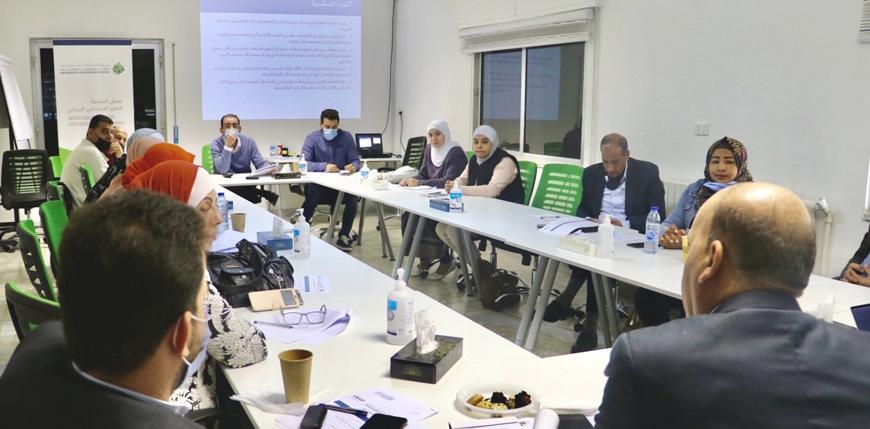You are here
Despite obstacles, sustainability of civil society sector remains constant — report
By JT - Dec 01,2021 - Last updated at Dec 01,2021

Representatives of non-governmental and community-based organisations during a recent annual assessment meeting (Photo courtesy of IRCKHF)
AMMAN — Every year since the Arab Spring, the Information and Research Centre – King Hussein Foundation (IRCKHF) has carried out the Jordan component of a regional assessment of civil society organisations sustainability.
In 2020, economic challenges, political volatility, COVID-19 and security concerns shaped the landscape for civil society organisations (CSOs) in Jordan, according to an IRCKHF statement.
Despite new and ongoing obstacles, the overall sustainability of the civil society sector remained constant.
While Jordanian CSO experts concluded that the legal environment and financial viability dimensions were impeded, CSO advocacy and public image were limited due to the COVID-19 pandemic.
It was also reported that CSOs are unable to communicate with law and policy makers at all levels of government.
On November 29, IRCKHF launched the CSO website and presented its report findings on CSO sustainability in Jordan for 2020.
This annual assessment is based on seven interrelated dimensions, including CSOs institutional capacity, their financial viability, infrastructure, public image, service provision, advocacy work and the legal environment.
The event was attended by Jordanian non-governmental and community-based organisations, international non-governmental organisations, representatives from the public institutions and the media.
Expert panellists who participated in the assessment earlier this year were from CSOs who work on issues and rights concerning women, people with disabilities, youth, refugees, the media, labour and other human rights.
Panellists were in agreement that the legal environment governing the CSO sector deteriorated in 2020. CSOs and activists faced increased harassment and setbacks to the freedoms of association and expression as a result of government restrictions to curb the spread of COVID-19, the statement said.
CSOs’ financial viability declined moderately in 2020 due to the scarcity of foreign funding, complications in seeking government approval for foreign grants and newly imposed pandemic-related funding guidelines.
CSO advocacy weakened in 2020 because the pandemic limited advocacy opportunities. CSOs were generally unable to use unconventional methods, such as mobilisation campaigns and digital tools, to influence decision-makers and reach grassroots constituencies, the statement said.
Other CSO sustainability areas in 2020 were unchanged: CSO panellists agreed that overall infrastructure of CSOs continued to be weak, while service provision and organisational capacity of CBOs remained stable.
Related Articles
AMMAN — The Information and Research Centre – King Hussein Foundation (IRCKHF) has held a virtual two-day expert panel meeting to discuss an
AMMAN — On Wednesday, the Information and Research Centre-King Hussein Foundation (IRCKHF) hosted a panel of experts to discuss and evaluate
AMMAN — The Information and Research Centre — King Hussein Foundation (IRCKHF), on Thursday launched the 2021 Civil Society Organisation (CS















